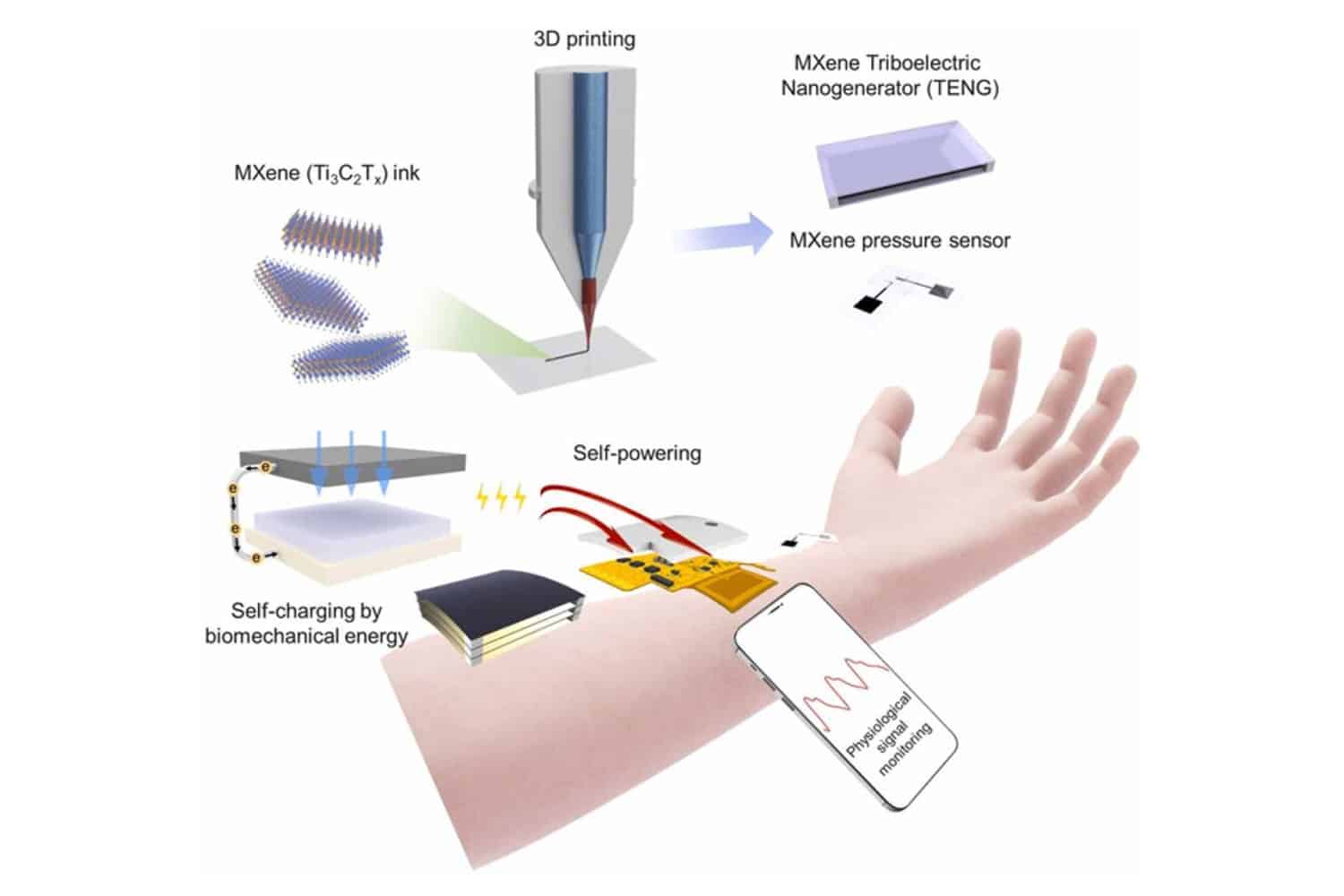
Sustainable, self-powered wearable devices that record physiological biosignals are essential in personalized health monitoring but have yet to be achieved.
Now, researchers at the University of California, Irvine, have invented a new self-powered, wristwatch-style health monitor that can keep track of a wearer’s pulse and wirelessly communicate with a nearby smartphone or tablet – without needing an external power source or a battery.
The device is built via 3D printing of nanomaterials on flexible substrates for real-time and wireless monitoring of vital signs. The current prototype serves as a self-powered radial artery pulse monitor, but other aspects of health – such as heart rate, body temperature, or blood pressure – can be gauged by simply changing the sensor circuitry, according to the paper‘s authors.
The wristwatch-style health monitor contains power-efficient triboelectric nanogenerators (TENG), highly sensitive pressure sensors, and multifunctional circuitry. It delivers health information in two ways. In one mode, the energy created by tapping the wristband’s nano energy generators powers up the sensor circuitry, and soon the wearer’s pulse rate appears as flashing signals on an LED display. The second mode works when a smartphone or similar device is held near the wearable.
Embedded near-field communication technology facilitates the wireless exchange of both power and data between the wristband and the mobile device, and biophysical information is plotted and displayed on the smartphone’s screen. The continuous, on-demand, fully self-powered characteristics of the device are made possible by triboelectric nanogenerators that produce voltage through mechanical thumping or pressure. These nanogenerators are fabricated using titanium-based MXenes, a relatively new class of ultrathin 2D material with unique electrical and mechanical properties. The MXene layers are only a few atoms thick and are bendable, stretchable, and can be printed onto the surface of flexible, bandage-like material or a wearable arm- or wristband.
“This innovation achieves many significant outcomes in one package,” said senior co-author Rahim Esfandyar-Pour, UCI assistant professor of electrical engineering and computer science and biomedical engineering. “It enables continuous, battery-free, wireless, and on-demand health monitoring anytime and anywhere. It’s made with low-cost and flexible materials and can be tailored to meet a variety of wearable bioelectronic sensors’ requirements. It’s a flexible, completely configurated system.”
The wearable system for continuous and real-time physiological biosignals monitoring is fully powered by human motion signaling exciting potential in the field.
New health monitoring wearable that operates without a battery
Source: Global Access News

No comments:
Post a Comment